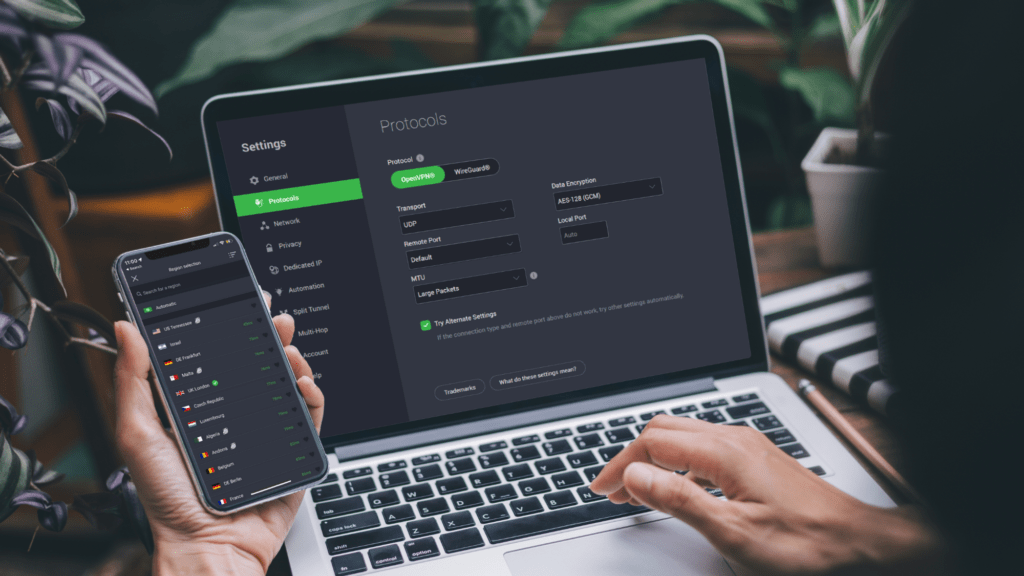
Surfshark Vs PIA’s Intro
Embarking on the digital highway comes with inherent risks, prompting the need for reliable protection. In this comparative exploration, we delve into two stalwarts of online security—Surfshark and PIA. Unveiling their security fortitude, performance prowess, and server infrastructure, we aim to decipher the superior choice in safeguarding your online presence. Join us in this insightful journey to discern which VPN, amidst Surfshark and PIA, aligns best with your digital safety needs
Surfshark vs PIA: Speed and Performance Analysis
In today’s digital landscape, safeguarding your online presence is crucial. VPNs (Virtual Private Networks) like Surfshark and PIA offer heightened security and privacy. Let’s delve into their security features to help you make an informed decision about which one suits your needs best.
Security Features Compared
Encryption Standards:
Both Surfshark and PIA utilize top-tier encryption protocols like AES-256, ensuring robust data encryption.
Kill Switch:
Surfshark’s kill switch and PIA’s equivalent feature prevent data leaks if the VPN connection drops, maintaining your anonymity.
No-logs Policy:
Both claim a strict no-logs policy, meaning they don’t store your browsing history or activity.
Ad Blockers and Malware Protection:
Surfshark offers CleanWeb, an ad and malware blocker, while PIA has similar protection to prevent intrusive ads and potential threats.
Security Audits and Transparency:
Surfshark has undergone independent security audits to verify its claims, whereas PIA has a long history of standing by its commitment to user privacy.
Performance and Security Trade-offs
While both Surfshark and PIA emphasize security, their performance might differ. Surfshark often prioritizes speed, ensuring a smooth browsing experience, while PIA might excel in certain security aspects.

Security Features Compared: Surfshark vs PIA
Security is paramount when choosing a VPN service. Surfshark and PIA (Private Internet Access) both prioritize user safety, but their approaches may vary. Let’s dissect their security features to discern which aligns better with your needs.
| VPN | Surfshark | PIA |
| Encryption Strength | Utilizes AES-256-GCM encryption, ensuring robust protection for your online activities. | It’s employs AES-256 encryption, providing top-tier security against potential threats. |
| Logging Policies | Guarantees a strict no-logs policy, assuring users that no personal data or browsing history is stored. | PIA maintains a staunch no-logs policy to protect user privacy. |
| Kill Switch Functionality | Offers a reliable kill switch, instantly cutting off internet access if the VPN connection drops, preventing data leaks. | Equipped with a kill switch feature, ensuring your internet connection remains secure even if the VPN unexpectedly disconnects. |
| Additional Security Tools | Includes CleanWeb, an integrated ad and malware blocker, bolstering your defense against intrusive ads and potential online threats. | Provides additional security measures to block ads and prevent potential malware intrusions during your browsing sessions. |
| Transparency and Audits | Underwent independent security audits, enhancing its credibility and validating its commitment to user security. | With a long-standing reputation, PIA has continuously emphasized transparency and stood by its pledge to safeguard user privacy. |
While both Surfshark and PIA prioritize security, nuances exist in their approaches. Surfshark might be preferable for its additional tools like CleanWeb, whereas PIA’s established history of transparency could sway certain users. The choice ultimately hinges on your priorities—whether it’s additional security features or a strong track record. Consider your preferences carefully to select the VPN service that best aligns with your security needs and online habits.
Server Network and Coverage: Surfshark vs PIA
The server network and coverage of a VPN service significantly impact its performance and accessibility. Let’s explore and compare the server infrastructure of Surfshark and PIA (Private Internet Access) to determine their reach and effectiveness.
Surfshark’s Server Network:
- Extensive Coverage: Surfshark boasts an extensive network, spanning across numerous countries and offering a large selection of servers.
- Diverse Server Locations: With servers strategically placed worldwide, Surfshark ensures users have access to varied virtual locations for optimized browsing and streaming.
- Specialty Servers: Surfshark provides specialty servers designed for specific purposes, such as P2P sharing, dedicated IP, and streaming, enhancing user experience for various online activities.
PIA’s Server Coverage:
- Vast Server Reach: Similar to Surfshark, PIA maintains a broad server reach, ensuring users can connect to servers in diverse global locations.
- Geographic Diversity: PIA’s servers cover a wide geographic range, offering users the flexibility to connect to servers in different regions for specific needs like bypassing geo-restrictions or ensuring anonymity.
- Focus on Anonymity: With its distributed server network, PIA emphasizes providing users with an anonymous and secure browsing experience across its server locations.
Succinct Summary
Comparing Surfshark and PIA reveals strengths in various aspects: Both offer robust security, featuring strong encryption and strict no-logs policies. Surfshark stands out for its speed, specialized servers, and advanced tools like CleanWeb, while PIA emphasizes extensive server coverage and diverse global locations. Surfshark boasts broad coverage, whereas PIA focuses on geographical diversity and anonymity.
The choice between Surfshark and PIA hinges on individual priorities. Surfshark appeals to those seeking speed and advanced features, while PIA caters to users valuing extensive network coverage and anonymity.
In conclusion, the decision depends on user preferences—whether prioritizing speed, specialized features, server diversity, or anonymity


